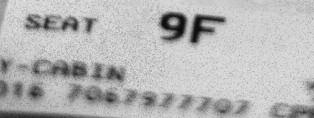

Early this morning, I removed my dog’s collar. I hadn’t made the coffee yet, and his jingling excitement about the prospect of breakfast was a little much for me. Without his collar, he was wary at first, unaccustomed to the silence, and the absence of his tether.
The look on his face was familiar – it was the disorientation of freedom, the clarity of silence. Last month, during a quick overseas trip, my suitcase contained no battery chargers. No phone, no PDA, no laptop. It was an important anniversary, and a too-short trip, so it deserved our full attention. Walking through the airport, I reached for my PDA at every pause – in the security line, waiting for the flight, waiting for the door to close. It wasn’t there. We’d brought a folder of reservations, maps, dates, and reviews. Paperbacks, a fountain pen, bound journal, and a small camera completed the carry-on bag. If my dog could describe it, he would say I didn’t jingle.
The result? Total immersion, and an awareness of our surroundings that we never achieve at home. It amounted to a two-week European vacation in four days on the ground – without pressure. We spent time in museums, markets, cafes and bistros, and walked for miles. We saw and heard and smelled it all.
We had time to see, and silence to think. This, plus a foreign culture, highlights the arbitrary nature of most of our decisions at home. Looking at how others live leads us to reconsider our own choices. That’s why people return from weekends, vacations, or hospital stays, with epiphanies and big, sudden decisions. It’s during these untethered periods that we decide to move, to change jobs, to do something differently from now on.
So why do we rely on people who never pause to consider? If we look at the current financial crises, and the now-obvious mistakes that led there – lending to the unqualified, building fragile interdependencies into financial systems, and assuming current conditions to be permanent – we see the effect of too much information and not enough pondering. Knowledge may come from data, but wisdom appears to come from taking the time to think about it.
As we find our way out of the current economic mess, we must make sure that our decisions reflect not just the immediate circumstances, but also the long view. This includes the history that got us here, ways that other economies address the same issues, and our growing international interdependence. We’ll have to think clearly, which takes time, but we’ll also have to think fast. How can you do both? Take off your collar, stop the jingling, and see what comes to mind.
Copyright 2008 - Noah Shlaes